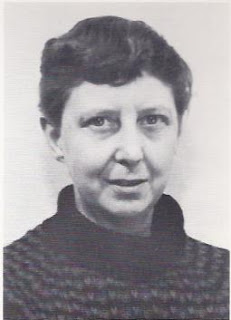I started adding up the numbers this afternoon to see what kind of progress, if any, I’ve been making toward meeting my 2020 reading goals. After getting over my initial disappointment at the lack of much real progress, I realized that, considering the on-again-off-again slump I’ve been in for most of the year, I shouldn’t be all that surprised by what the numbers are telling me.
Coming into the year, my goals were simple enough:
1. To read more American and World History (1)
2. To read more translated works (4)
3. To read from my own bookshelves (12)
4. Read more literary classics (1)
5. Read books published between 1920 and 1979 (7)
6. Read the earliest books from series I stated mid-way (7)
7. Read more foreign titles not from Canada or the U.K. (5)
As you probably guessed already, the numbers in parentheses represent the number of books from each category that I’ve read to this point in the year. Even if I manage to double those numbers by the end of 2020, I’m going to be way short on my goals for several of the categories.
And I know why this is happening. In the past, the vast majority of my reading has been done in physical books that I either purchased for myself or acquired from the local library. Now that both libraries and bookstores are locked up tight, and physical books are so much harder to get hold of, I’ve been forced to read more e-books than ever before. Library e-books tend to be more recently published ones than not, and bookstore e-books are so expensive that I don’t buy all that many of them. (Just last week I purchased too e-books that, with tax, ended up costing me right at $32. I’m sorry, but that seems outrageous to me, because it is almost the cost of physical copies of the same two books, one of which was published in 2020 and the other in 1985.)
The result is that of the 64 books I’ve read to-date, 41 of them were published in either 2019 or 2020. And that doesn’t play well with some of my goals. I was a bit surprised to see that I’ve read 26 e-books and 25 physical books, a smaller number of e-books than it’s felt like I’ve been reading. But, throw in the 13 library audiobooks I’ve read this year, and it all starts to make sense why two-thirds of my reading has been confined to books published in the last 18 months. Library holds for e-books and audiobooks are a wonderful thing right now, don’t get me wrong, but choices are so heavily weighted toward newer books that it’s easy to find yourself reading almost exclusively nothing but bestsellers and other “hot” titles. And that’s what has happened to me since March.
Other tidbits that jump out at me:
· 5 abandoned books (a much lower number than usual for this time of year)
· 39 books written by men, 24 by women, and 1 co-authored by one of each
· 4 books by British writers, 4 by Canadians, 2 by Iranians, 1 by a Nigerian, 1 by a Swede, and 1 by a Frenchman
I love crunching numbers almost as much as I love reading – as you can probably tell.

















































